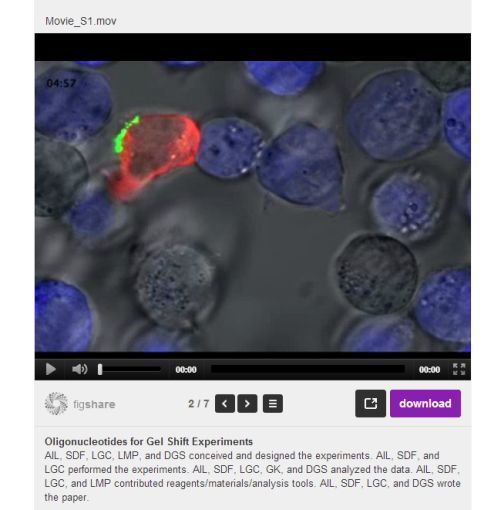Easier access to PLOS data
You’ve always relied on PLOS to make scientific and medical research freely accessible to all. Now we’re introducing a number of tools and services to unlock the full potential of the data that currently exists in the Figures and Supporting Information files of our journals but has to this point been just beyond easy reach and these include:
Expanding our partnership with Dryad – since July 2012, PLOS Biology has been encouraging authors to deposit their underlying data (and here’s a great blog post on why that’s important) in this open access repository at submission so that it is available during the peer-review process and safely secured for future reference. PLOS Genetics is the latest journal to offer this option and will be joined by all our other titles in due course.
Providing more Digital Object Identifiers (DOI) – previously only available for the entire article, we’ve expanded the number of citable objects to include Figures and SI files with the goal of encouraging more granular linking to and re-use of smaller units of content.
Introducing a widget from figshare – now you can see inside the SI files (datasets, text files, documents, animations, videos and presentation files) without leaving the article or opening them. When you spot interesting files you can download them singly or altogether.
Here’s what Theo Bloom, Editorial Director for Biology, had to say about these developments “in our 10th anniversary year, we are delighted to see the expansion of our efforts to encourage data access and sharing to the other PLOS journals. By supporting openness in data use and re-use, and open access to the literature, we hope to drive the PLOS mission of leading a transformation of research communication forwards”.
Look out for more announcements about data as we continue to improve the accessibility of our content so that others can build on more of it than ever before. If you have ideas or thoughts to share on this topic, please let us know via Twitter, Facebook or email.

